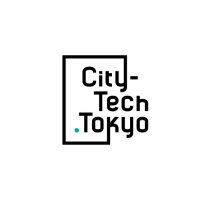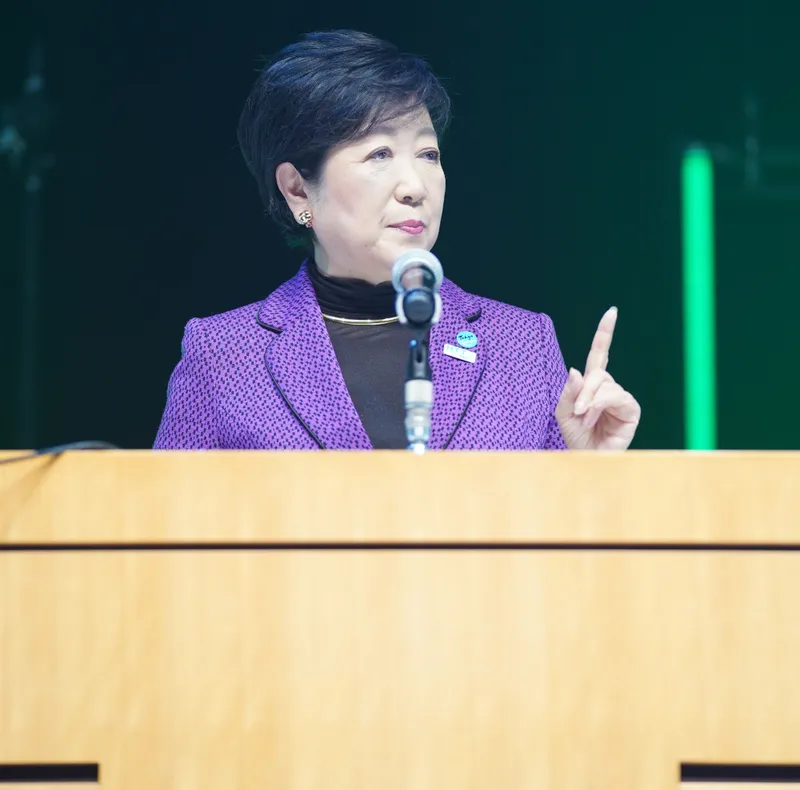
City Tech.Tokyo
View Brand PublisherCity-Tech.Tokyo: Governor Koike Yuriko announces bold plans to boost Tokyo's startup ecosystem
City-Tech.Tokyo marks a significant milestone for Tokyo's startup ecosystem. The Tokyo Metropolitan Government's ambitious plans and budget allocation demonstrate its commitment to supporting startups and promoting innovation.
Tokyo hosted its first global smart cities event, City-Tech.Tokyo, showcasing innovative sustainability solutions by startups and university ventures.
The groundbreaking event brought together thousands of global participants, including enterprises from Japan and other regions and a diverse range of players from the startup ecosystem, with a shared goal of promoting Tokyo as a startup hub in Asia and contributing to a more sustainable world.
Delivering the opening address at the City-Tech.Tokyo event, Governor Koike Yuriko of Tokyo outlined the Tokyo Metropolitan Government's (TMG) ambitious plans to develop and enhance the city's startup ecosystem.

Governor Koike Yuriko of Tokyo
Governor Yuriko's address focused on the TMG's "global innovation with startups" strategy roadmap, which was formulated in November 2022. The strategy roadmap aims to increase the number of startups in Tokyo and promote collaborative projects between the government and startups.
The goal is to achieve a 10-fold increase in the number of startups in Tokyo, a 10-fold increase in the number of Tokyo-born unicorn startups, and a 10-fold increase in TMG-startup collaborative projects over the next five years.
To support these goals, Tokyo has allocated a budget of 28.6 billion yen (approximately $200 million), a 150% increase from last year, for startup-related projects. Over the next five years, the TMG hopes to provide over $1 billion in support.
10 billion yen fund to support university startups
Governor Yuriko also announced that Tokyo is working on investing in startups in the vulnerable pre-seed stage where it can be difficult to secure funding.
The city will invest in overseas expansion of domestic startups and establish accelerator programmes in collaboration with overseas venture capitalists and accelerators. The TMG will create a 10 billion yen (approximately $70 million) fund to support university startups.
To promote startup participation in public procurement, Tokyo will offer greater visibility and credibility. The TMG will also open the Tokyo Innovation Base, a large startup hub that will serve as a gateway to Asia next year. The centre will support young startups lacking financial resources and know-how. It will have a pre-opening in one year and a full opening within two years.
Governor Yuriko also introduced Sustainable High City Tech Tokyo (SusHi Tech Tokyo), which aims to share Tokyo's ideas and technologies for overcoming shared urban issues with the world and enhance its presence in the international community.
As part of this initiative, the TMG will hold the City-Tech.Tokyo and G-NETS Leaders Summit. The latter is an international conference to discuss overcoming shared challenges and confirm mutual commitment for collaboration. City-Tech.Tokyo aims to use ideas and technologies of a number of diverse players to overcome challenges and offer a new vision for the future.
Governor Yuriko's announcement marks a significant milestone for Tokyo's startup ecosystem. The TMG's ambitious plans and generous budget allocation demonstrate its commitment to supporting startups and promoting innovation in the city. With Tokyo's innovative ideas and technologies, it is poised to become a major player in the international startup community.
Call for collaboration among stakeholders
Delivering her keynote address, Ulrike Schaede, a professor of Japanese business at the University of California, San Diego, focused on the theme of "innovation ecosystems" and how they are shaping the future of business in Japan and beyond.
She argued that successful innovation ecosystems require a range of actors, including entrepreneurs, investors, universities, and government agencies, to work together in a collaborative and coordinated way.
Schaede highlighted several examples of successful innovation ecosystems in Japan, including the "Kyoto Model," which has fostered collaboration between academia and industry to drive innovation in the region. She also discussed the role of government policies, such as tax incentives and funding programmes, in supporting innovation ecosystems.
However, she also noted that Japan faces challenges in building and maintaining successful innovation ecosystems. For example, she pointed to the country's conservative business culture, which can be resistant to change and risk-taking. Japan's rigid labour market and lack of venture capital funding can inhibit the growth of new businesses and startups, she said.
Despite these challenges, Schaede remained optimistic about the potential for Japan to continue driving innovation and growth. She emphasised the importance of promoting a culture of innovation and entrepreneurship, and of creating policies that support risk-taking and experimentation. She also encouraged greater collaboration between Japan and other countries, particularly in areas such as digital technology and renewable energy.
Dealing with challenges
In a video address, Ben Horowitz, Co-founder and general partner at venture capital firm Andreessen Horowitz, spoke candidly about the challenges entrepreneurs face when building and growing companies.
Horowitz emphasised that one of the most difficult things to understand as an entrepreneur is that a company's value can change due to factors that have nothing to do with the company itself. He pointed out that during times of economic downturn, such as the COVID-19 pandemic, companies can lose 50-70% of their value, even if they are performing well and have strong sales and a talented team.
He also spoke about the intense emotions that founders experience during these difficult times, and how their experience is often far more intense than that of their employees.
A group of smart city leaders from the United States were invited to attend and speak at a global knowledge exchange conference, emphasising inclusion. Jennifer Sanders from the North Texas Innovation Alliance, Tyler Svitak representing the Colorado Smart City Alliance, Ruthbea Yesner from IDC, and Bob Bennett of the Cities Today Institute were in attendance.
During a panel discussion on ‘Developing smart city ecosystems for high impact transformation’, Yesner highlighted the importance of partnerships between cities, regions, national levels of government, and other public and private sector organisations to build smart and resilient cities. The panelists discussed ways for cities to share successes and lessons learned to reduce risks associated with implementing technology innovations.
Spotlight on City-Tech Challenge
The highlight of the event was the City-Tech Challenge, a pitch competition where startups competed for a grand prize of 10 million yen ($73,613). The top prize was awarded to Kyoto Fusioneerding, which aims to provide "a new energy future for humankind", as mentioned on its website.
The City-Tech.Tokyo event had it all - pitch contests, over 450 business meetings, and 300 startup booths to promote information exchange and investment.
The event demonstrated the government's commitment to realising its vision for 2040, to become "the most startup-friendly city in the world" as outlined in the Future Tokyo comprehensive plan.







